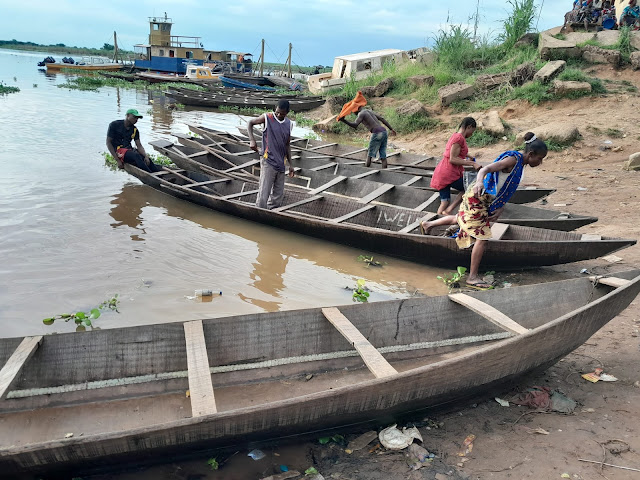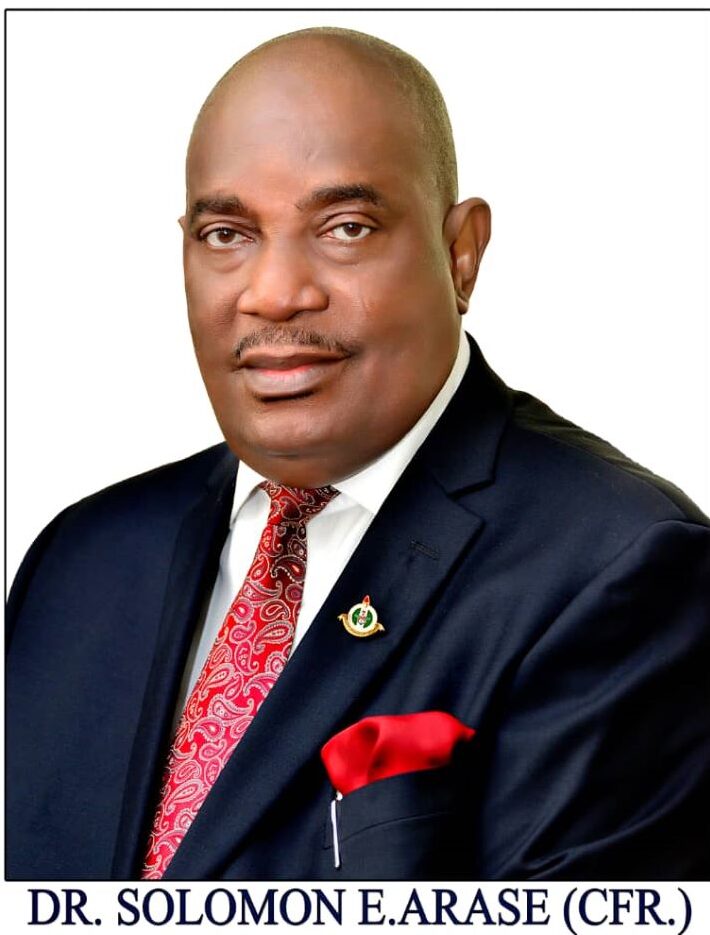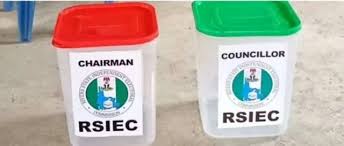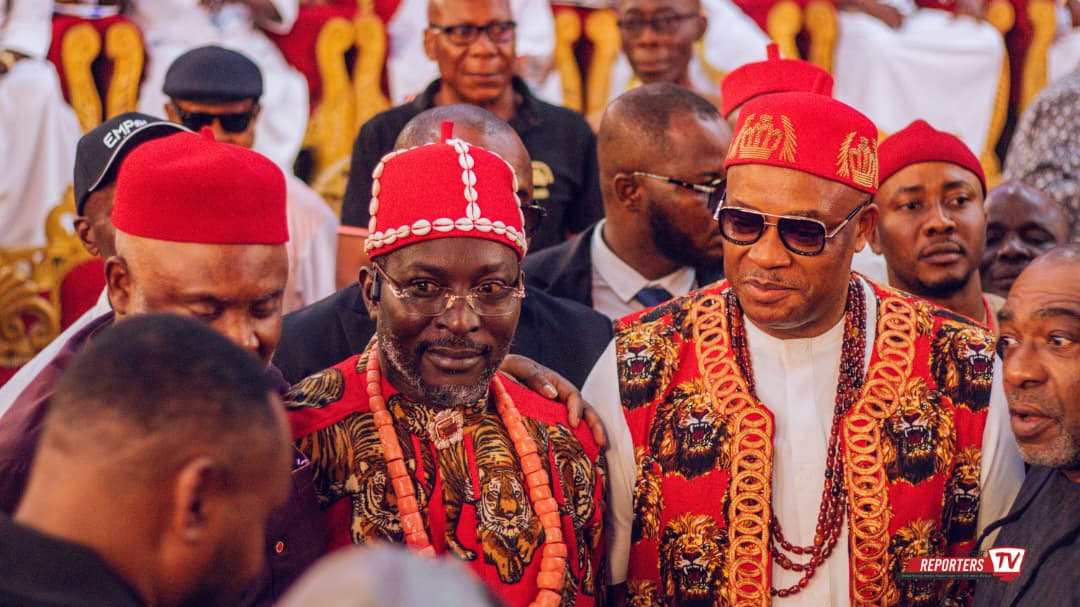In a decisive move to address the persistent issue of boat accidents on Nigeria’s waterways, the Federal Government has issued an urgent call to state governments to phase out the use of wooden boats and adopt safer, more durable alternatives such as fibre and aluminium boats. This appeal was made by the Minister of Marine and Blue Economy, Adegboyega Oyetola, in a heartfelt statement expressing condolences to the victims and families affected by the recent tragic boat mishap in Shagari, Sokoto State. The minister attributed the incident to the continued reliance on structurally deficient wooden vessels, underscoring the need for immediate action to prevent further loss of life and property.
A Call for Urgent Action
The Shagari boat mishap, which claimed lives and left communities in mourning, has brought renewed attention to the dangers associated with the use of wooden boats for water transportation in Nigeria. Minister Oyetola described the tragedy as a stark reminder of the risks posed by outdated and unsafe vessels. “The Federal Government is appealing to state governments to urgently complement its efforts by investing in modern, non-wooden boats for commercial operations in their states,” Oyetola stated. This appeal reflects the government’s recognition that systemic change is required to address the recurring accidents that have plagued Nigeria’s waterways for decades.
The minister’s statement emphasized that the Federal Government has already taken significant steps to improve safety on the nation’s waterways. However, he stressed that these efforts must be matched by proactive measures at the state level to achieve meaningful results. By transitioning to fibre and aluminium boats, state governments can play a pivotal role in reducing accidents, saving lives, and fostering economic growth in riverine communities.
The Limitations of Wooden Boats
Wooden boats have long been a staple of water transportation in Nigeria, particularly in rural and riverine areas where waterways serve as critical arteries for trade, travel, and communication. However, these vessels, often handcrafted and lacking modern safety features, are increasingly inadequate for the demands of contemporary water transport. Minister Oyetola highlighted the structural weaknesses of wooden boats, noting that they are prone to damage, leakage, and capsizing, especially under challenging weather conditions or heavy loads.
“Despite the ministry’s interventions, including the distribution of 3,500 life jackets to every riverine state, accidents have persisted due to the structural weaknesses of wooden boats, which are no longer suitable for modern water transport,” Oyetola explained. He pointed out that wooden boats, while affordable and widely used, do not meet the safety standards required for reliable and secure transportation. Their susceptibility to wear and tear, coupled with the absence of standardized construction methods, makes them a significant risk to passengers and operators alike.
The Case for Fibre and Aluminium Boats
In contrast, fibre and aluminium boats offer a safer and more reliable alternative for water transportation. According to Oyetola, these modern vessels are sturdier, more durable, and designed to meet global standards for inland and coastal transportation. Fibre boats, typically made from fibreglass, are lightweight, resistant to corrosion, and capable of withstanding harsh environmental conditions. Aluminium boats, similarly, are known for their strength, longevity, and low maintenance requirements, making them ideal for commercial operations in Nigeria’s diverse waterways.
The adoption of fibre and aluminium boats, the minister argued, would not only enhance safety but also drive economic activity in riverine communities. “Investing in these modern boats will save lives and create new opportunities for economic growth,” Oyetola said. Safer transportation options would encourage greater use of waterways for trade and tourism, boosting local economies and improving access to markets for farmers, fishermen, and small-scale entrepreneurs.
Federal Government’s Efforts to Improve Waterway Safety
The Federal Government, through the Ministry of Marine and Blue Economy, has already implemented several initiatives to enhance safety on Nigeria’s waterways. One of the most significant measures is the distribution of 3,500 life jackets to every riverine state, a move aimed at ensuring that passengers have access to critical safety equipment. Additionally, the ministry has mandated the compulsory use of life jackets for all water-based travel, a policy designed to reduce fatalities in the event of accidents.
However, Oyetola emphasized that life jackets alone are not sufficient to address the root causes of boat mishaps. “Life jackets are a critical component of waterway safety, but they cannot guarantee safety without safe boats,” he said. The minister’s statement underscores the need for a holistic approach to waterway safety, one that combines the provision of safety equipment with the adoption of modern, structurally sound vessels.
The ministry has also engaged in efforts to regulate and standardize water transportation practices across the country. This includes working with the National Inland Waterways Authority (NIWA) to enforce safety regulations, conduct inspections, and provide training for boat operators. These initiatives reflect the Federal Government’s commitment to reducing accidents and ensuring that Nigeria’s waterways are safe for all users.
The Role of State Governments
While the Federal Government has taken significant steps to improve waterway safety, Minister Oyetola stressed that state governments must play a complementary role in this effort. Nigeria’s federal system of governance places significant responsibility on states to address local challenges, including those related to transportation and infrastructure. By investing in fibre and aluminium boats, state governments can address the specific needs of their riverine communities and contribute to the broader goal of reducing accidents.
Oyetola’s appeal to state governments is both a call to action and a recognition of the shared responsibility for improving waterway safety. “I therefore appeal to our state governments to complement the Federal Government’s efforts by deliberately investing in fibre and aluminium boats,” he said. “This is the seed we must sow today to secure a safer, more prosperous tomorrow.” The minister’s use of the metaphor “seed” highlights the long-term benefits of such investments, which could transform Nigeria’s waterways into safe, efficient, and economically vibrant corridors.
Economic and Social Implications
The transition to fibre and aluminium boats has far-reaching implications for Nigeria’s riverine communities. Beyond improving safety, modern boats can enhance the efficiency and reliability of water transportation, making it easier for communities to access markets, healthcare, and educational opportunities. In many parts of Nigeria, particularly in the Niger Delta and other riverine regions, waterways are the primary mode of transportation. Upgrading the vessels used for these journeys could have a transformative impact on the lives of millions of Nigerians.
From an economic perspective, safer and more reliable boats could unlock new opportunities for trade and commerce. For example, fishermen and farmers in riverine areas could transport their goods to markets more efficiently, reducing losses due to accidents or delays. Similarly, the tourism sector, which relies heavily on safe and comfortable transportation, could benefit from the adoption of modern boats, attracting more visitors to Nigeria’s scenic waterways.
Socially, the shift to safer boats could help build trust between communities and the government. Recurrent boat accidents have often led to public outcry and a perception that the government is not doing enough to protect vulnerable populations. By investing in modern vessels and enforcing safety regulations, state and federal governments can demonstrate their commitment to the well-being of their citizens.
Challenges and Considerations
While the benefits of transitioning to fibre and aluminium boats are clear, the process is not without challenges. One of the primary obstacles is the cost of acquiring modern boats, which are significantly more expensive than traditional wooden vessels. For many boat operators, particularly small-scale entrepreneurs, the upfront cost of purchasing fibre or aluminium boats may be prohibitive. State governments will need to explore innovative financing models, such as subsidies, low-interest loans, or public-private partnerships, to make these boats accessible to operators.
Another challenge is the need for training and capacity building. Many boat operators in Nigeria are accustomed to using wooden boats and may lack the skills or knowledge to operate modern vessels. State governments, in collaboration with the Federal Government and relevant agencies, will need to invest in training programs to ensure that operators are equipped to handle fibre and aluminium boats safely and efficiently.
Additionally, the transition to modern boats will require a coordinated effort to phase out wooden vessels. This could involve regulatory measures, such as setting deadlines for the replacement of wooden boats or introducing stricter safety standards for all vessels operating on Nigeria’s waterways. Such measures must be implemented sensitively to avoid disrupting the livelihoods of boat operators and communities that rely on water transportation.
A Vision for Safer Waterways
Minister Oyetola’s appeal reflects a broader vision for transforming Nigeria’s waterways into safe, efficient, and economically viable corridors. By phasing out wooden boats and adopting modern alternatives, the Federal Government and state governments have an opportunity to address one of the most pressing challenges facing riverine communities. This vision aligns with the objectives of the Ministry of Marine and Blue Economy, which seeks to harness Nigeria’s vast maritime resources for sustainable development.
The Shagari boat mishap, while tragic, serves as a wake-up call for all stakeholders to prioritize waterway safety. By working together, the Federal Government, state governments, and local communities can create a future where accidents are rare, and waterways serve as engines of economic growth and social progress.
Conclusion
The Federal Government’s call for state governments to phase out wooden boats in favor of fibre and aluminium alternatives is a critical step toward improving safety on Nigeria’s waterways. Minister Adegboyega Oyetola’s appeal, prompted by the recent Shagari boat mishap, underscores the urgency of addressing the structural weaknesses of wooden vessels and adopting modern, safer alternatives. While the Federal Government has made significant strides in providing life jackets and enforcing safety regulations, the success of these efforts depends on the active participation of state governments.
By investing in fibre and aluminium boats, states can not only save lives but also unlock new opportunities for economic and social development. The transition to modern vessels will require overcoming challenges related to cost, training, and regulation, but the long-term benefits far outweigh the obstacles. As Nigeria looks to the future, the adoption of safer boats represents a vital step toward building a more prosperous and secure nation.






